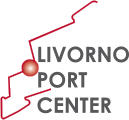
29 Giu Porti & dintorni. Cosa fa la portualità internazionale per reagire alla crisi. Numero 8
Questa settimana torniamo a focalizzarci sull’attività di IAPH-International Association of Ports and Harbors.
One major outcome of the intensive work in recent weeks by the IAPH’s World Ports Sustainability Program Covid-19 Task Force has been the very urgent need for ports to digitalize processes and data exchanges as we move towards a post-COVID19 modus operandi. This conclusion has led to IAPH organizing a industry call to action in the first week of June which has culminated in a joint communiquéby various maritime industry associations to the IMO. This call to action is also now being matched in practice with the publication of the WPSP Port Community Cyber Security White Paper, which serves as guide to those ports now gearing up for digitalization. “With the world’s attention now focused on exiting from lockdowns and preparing for a ‘new normal’, there is an urgent need for inter-governmental organisations, governments and industry stakeholders concerned with maritime trade and logistics to come together and accelerate the pace of digitalization so that port communities across the world can at least offer a basic package of electronic commerce and data exchange” comments IAPH Managing Director Patrick Verhoeven in the White Paper’s foreword. “Increased digitalization of port communities means ports will need to pay increased attention to cyber security risks.” The fifteen-page White Paper has been put together by IAPH in association with ICHCA International and TT Club, with the idea for it originally emerging from a meeting between the contributors at the TT Club offices in London, during the 2019 edition of London International Shipping Week. It is the product of a collaborative effort between port and cyber security experts, collectively offering many decades of experience both inside and outside the maritime industry. Each chapter in the paper explores a different dimension of the cyber conundrum, with practical recommendations, advice and examples. These include :
- Why cyber security is such a vital issue for port communities looking at trade, regulatory, geo-political and defense dimensions.
- The importance of ‘speaking the same language’ around cyber security
- What is commonly missing in port community cyber security and practical suggestions on steps to increase cyber resilience.
- The essential building blocks for a cyber resilient port community.
- Current cyber security provisions in the IMO rules and the potential evolution of the Port Facility Security Officer role for the future.
The report also contains a well-defined Glossary of Cyber Terms in order for the document to reach beyond IT-articulate professionals in the port industry. IAPH Managing Director Patrick Verhoeven concludes:
“We began by creating and publishing our now bi-weekly Port Economic Impact Barometer report for the wider maritime community. We then developed the WPSP COVID-19 Guidance document for ports with the accumulated work of the WPSP-IAPH Task Force. We now offer this Cyber Security White Paper, again by port experts for ports. We sincerely hope that this practical, pragmatic approach towards assisting our membership and the world’s ports communities overall will help us overcome the challenges all of us face in the post COVID-19 era. Digitalization will be key to future port safety and efficiency.” The report has been assembled by the WPSP team together with Next Level Info and digital trade logistics experts Maritime Street.
Sia a livello europeo che a livello mondiale le diverse realtà dello shipping si sono attivate per cercare di analizzare il contesto della crisi (post)Covid-19 e cercare risposte di breve e medio termine alle difficili sfide che si prospettano per la ripresa del settore.
I porti del sistema dell’Alto Tirreno stanno contribuendo in vario modo a questa attività, collaborando con le istituzioni locali e territoriali e con le associazioni internazionali stesse.
AdSP MTS ha creato una sezione dedicata nel proprio sito istituzionale (Osservatorio Covid-19), come del resto altre istituzioni omologhe e associazioni operanti nei vari settori della portualità.
Il Livorno Port Center, coerentemente alle proprie funzioni di centro di diffusione della cultura e delle attività marittimo-portuali, proporrà, nelle prossime settimane, aggiornamenti periodici sulla panoramica internazionale, con un focus particolare sull’interazione porto-città e sugli aspetti socio-economici presi in esame nelle newsletter delle diverse associazioni internazionali.
Parte degli aggiornamenti che verranno pubblicati saranno in lingua inglese: attingeremo direttamente alle fonti, con l’intento di dare maggiore risalto e maggiore diffusione a notizie che hanno appunto respiro internazionale.

